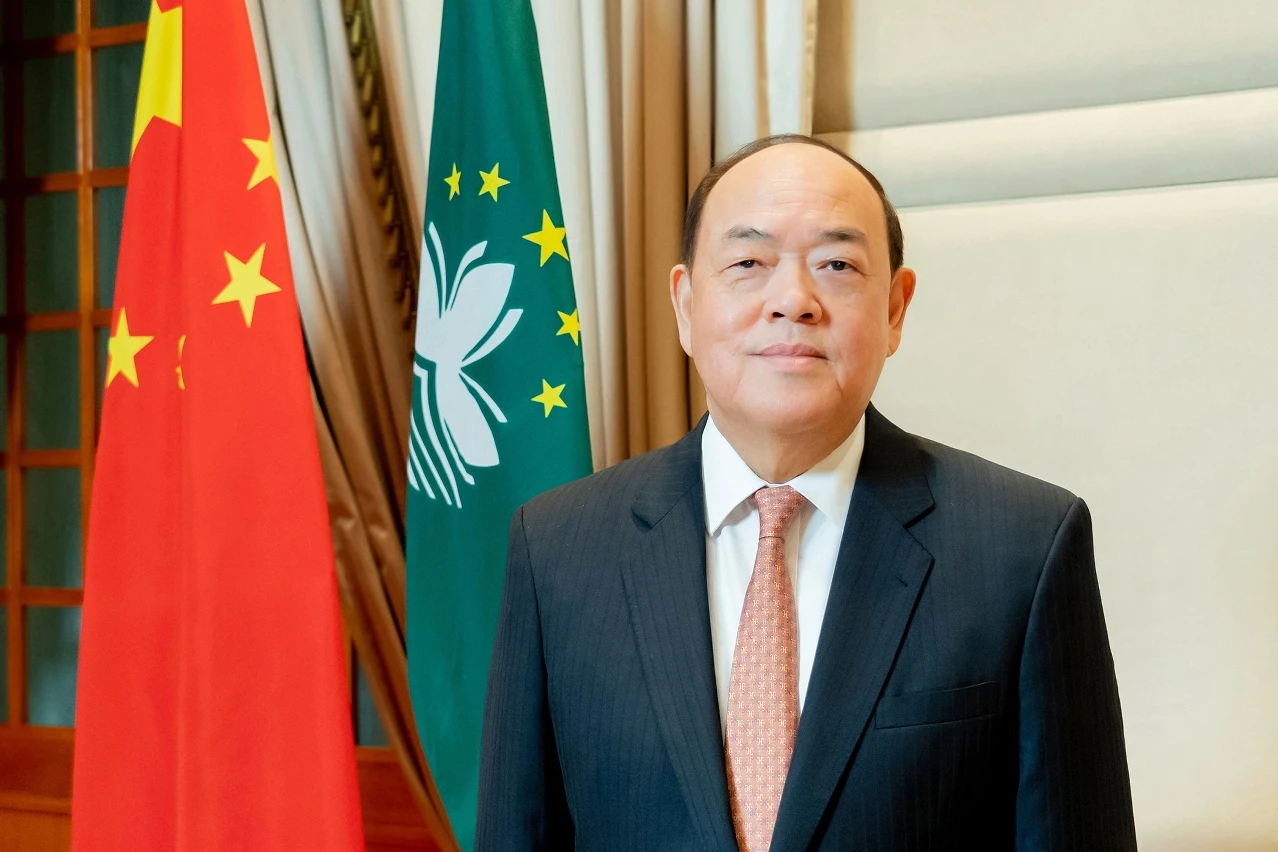Ho Iat Seng said efforts to diversify the economy beyond gaming are bearing fruit, as new industries contribute more to GDP. He added: “We’re not trying to shrink the gaming sector.”
Yesterday (19 November), in his final address as chief executive, Ho said, “Even amid the severe challenges posed by the Covid-19 pandemic, the government’s drive to promote moderate economic diversification has remained unwavering.
“At present, Macau’s economy is steadily recovering,” he said, according to the Macau Daily Times. “Major economic indicators are stabilising and demonstrating improvement and some even surpassing 2019 levels.”
Ho took office in August 2019, three months before China’s first Covid cases and served during one of the city’s most turbulent periods.
The Chinese special administrative region (SAR) closed to travel for almost three years and didn’t fully reopen until January 2023. Tourism plummeted along with gross gaming revenue – the life blood of the world’s top gaming market.
Crisis equals opportunity
But the shutdown had an unexpected benefit, as the city moved to end its reliance on gaming as the main economic driver.
Ho’s “1+4” strategy for economic development emphasises tourism while building four new economic pillars: healthcare, finance, technology and a catch-all fourth category that includes events and conventions, trade, commerce, culture and sports.
In his Tuesday address, the CE said the government’s goal is not to “to compress the gaming industry; rather, we’re trying to grow the pie” by expanding other sectors.
Before Covid, the gaming sector contributed more than half of the city’s GDP and generated 80% of local tax revenue. It also employed 17% of residents. This year, by contrast, gross gaming revenue (GGR) will contribute 40% of gross domestic product (GDP), with other industries kicking in 60%, said Ho.
Last year, the total value added of the “plus-four” industries was MOP39.05 billion (£3.8 billion/€4.56 billion/$4.88 billion), up 6.9% from 2019. Ho’s tenure also saw a crackdown on capital flight, money laundering, cross border gambling and illicit money-changers and a shift from VIP gaming to mass and premium mass players.
“These measures have effectively regulated the development of the gaming industry,” said Ho.
Concessionaires as collaborators
“The gaming operators have started to understand our goals and are seeing the benefits,” Ho said in his farewell address. “They lost a lot of money during the pandemic, but now they are profiting from both gaming and non-gaming activities. We are focusing on attracting different types of visitors.”
According to government figures, 40% of Macau gamblers now hail from outside mainland China. And while mainland visitation grew 36.3% year-on-year to 18.2 million through September, international visitors comprised 40% of arrivals, growing 95.1% year-on-year in the same period. Philippine visitors topped the list, followed by Indonesia, Thailand and Singapore.
“Our approach is working,” said Ho. “Some of the non-gaming activities may not directly generate revenue, but they benefit Macau by attracting new groups of people.”
Macau casino concessionaires have been asked to do their part, kicking in MOP108.2 billion in nongaming investments as conditions of their concessions, which will last through December 2032.
“Now, the gaming industry in Macau has entered healthy development and the industry has become more planned,” Ho reflected.
GGR continues to grow
Ho added that the 2024 GGR could reach MOP$228 billion this year and MOP$240 billion next year.
“We are adding 6% to this year’s estimate of gross gaming revenue, which is about MOP$240 billion,” he said. “This is not a high estimate, it is a conservative estimate. I do not think it is a difficult target to achieve.”
Ho noted that the economy grew by 86% year-on-year in 2023 – a strong rebound from the pandemic – with an additional 11% boost projected for 2024, per Macao News.
In August, Ho announced he would step down for health reasons. On 20 December, he will pass the baton to incoming chief executive Sam Hou Fai, a one-time judge.
In concluding remarks, the 67-year-old Ho said it was “a great honour to lead Macau out of the worst”.
“I’m quite old,” said Ho. “I should let someone younger take over the position.”

